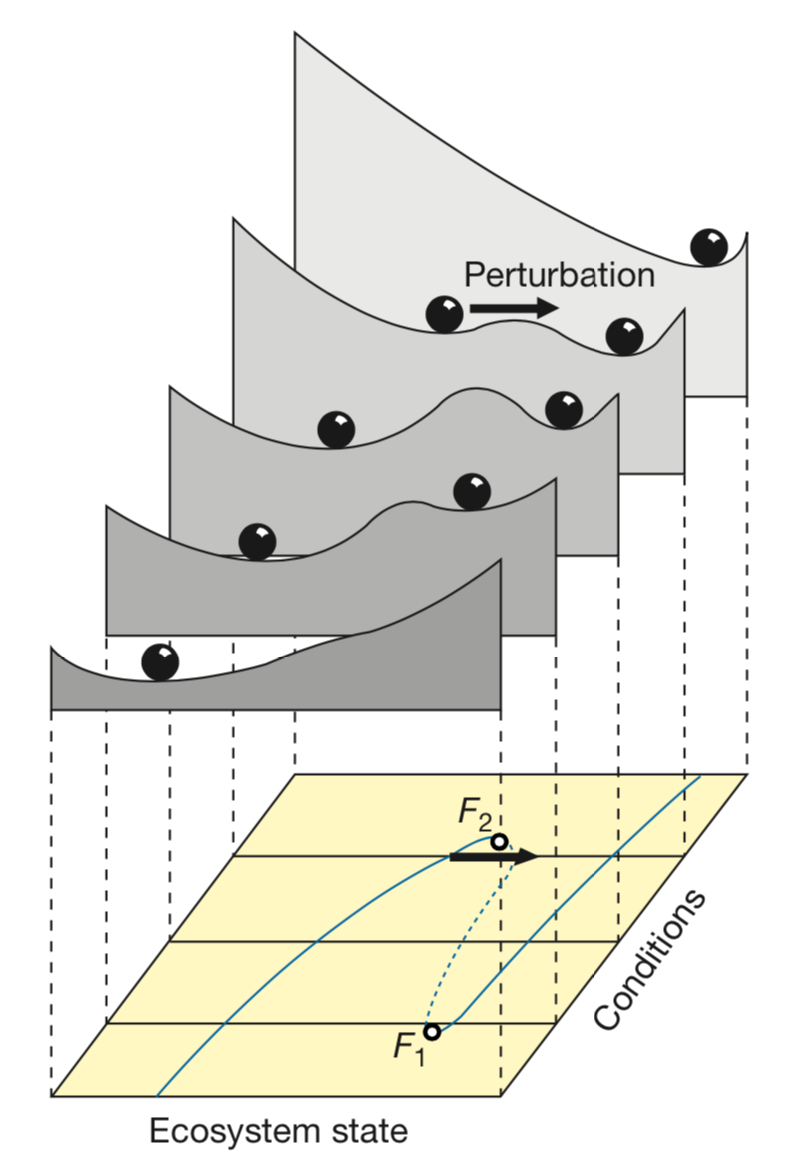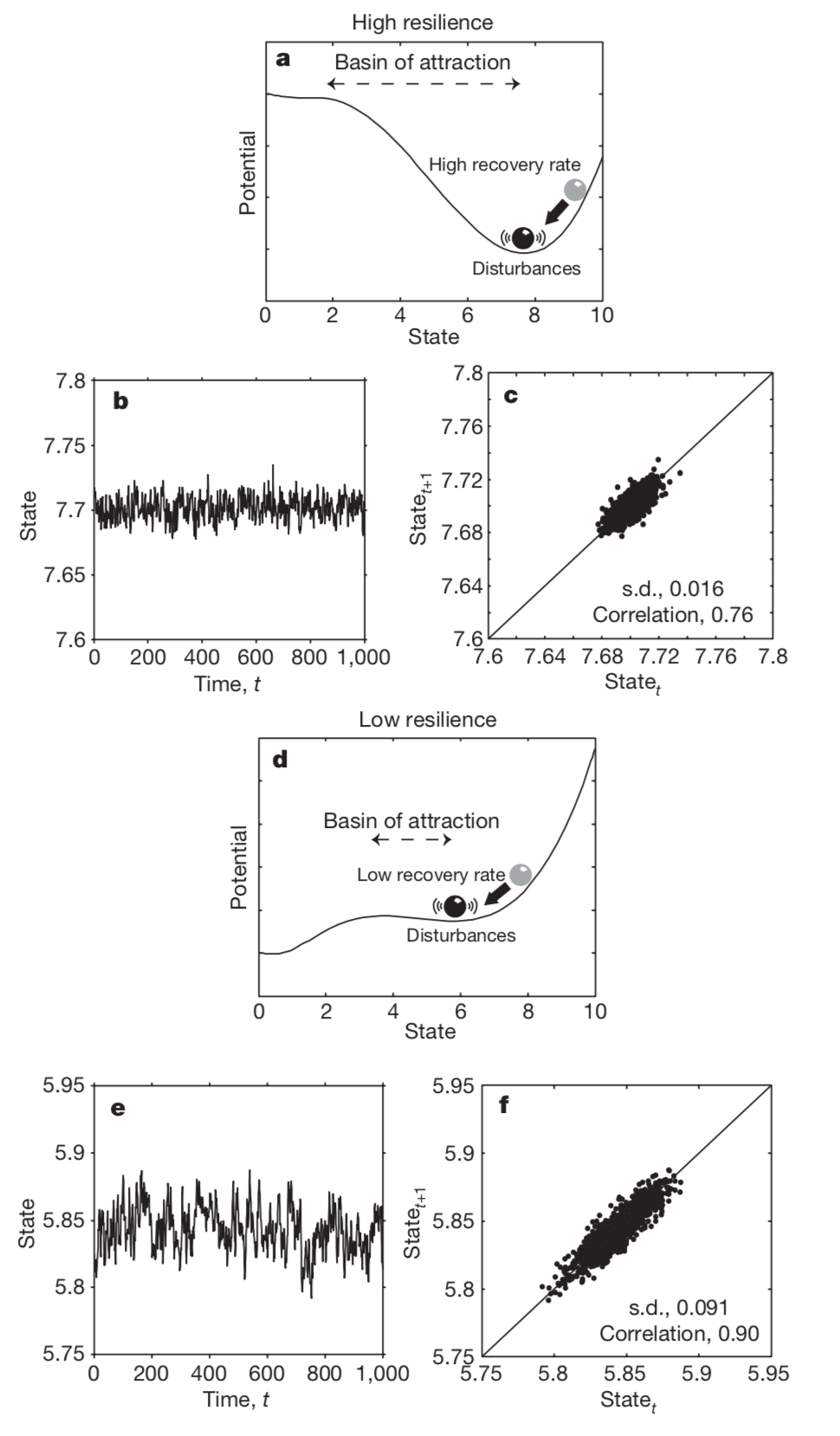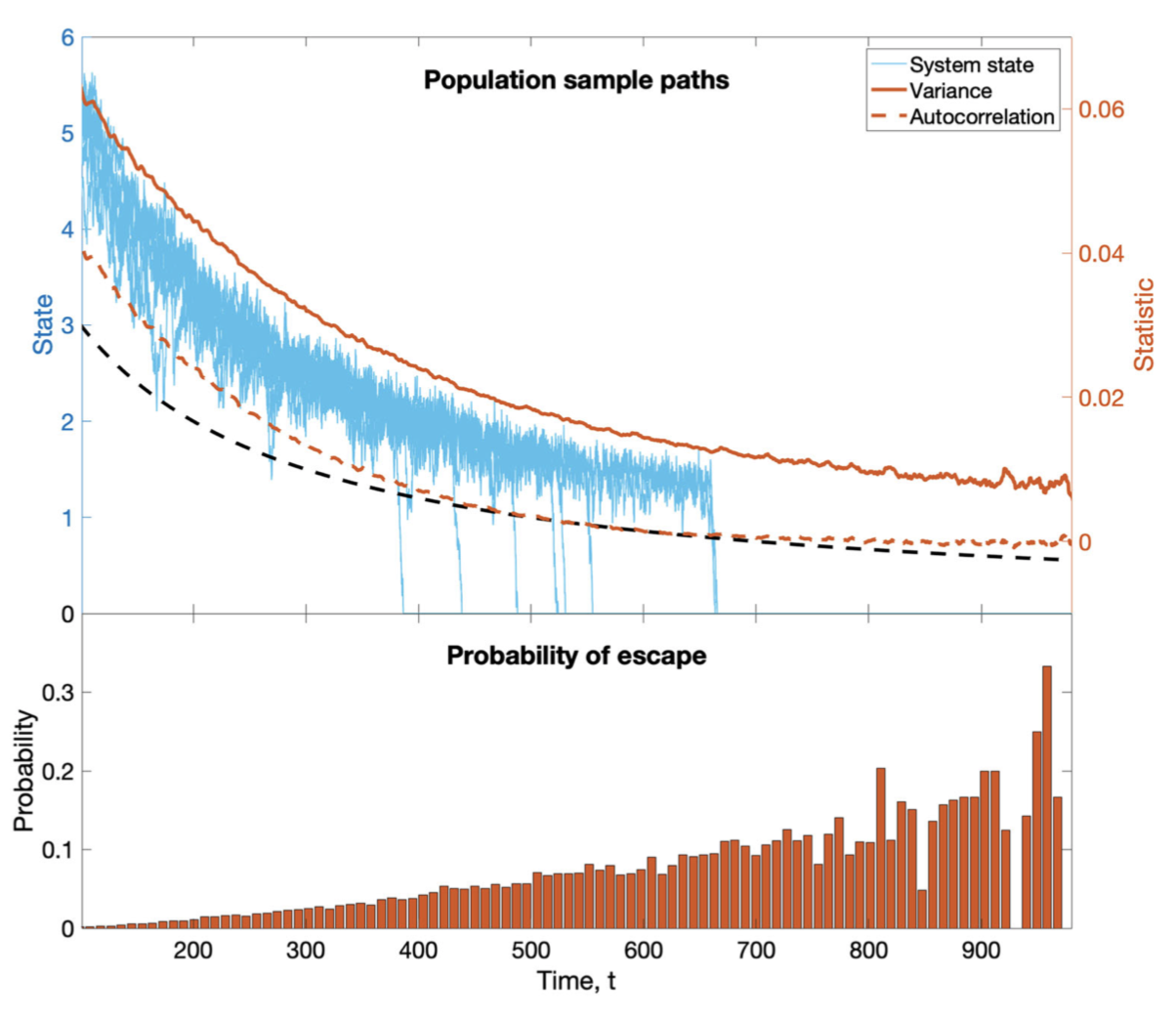03:00
Early warning signals
Applications to resilience assesments
What is resilience?
resilience | rɪˈzɪlɪəns | (also resiliency)
noun [mass noun]
1 the capacity to recover quickly from difficulties; toughness: the often remarkable resilience of so many British institutions.
2 the ability of a substance or object to spring back into shape; elasticity: nylon is excellent in wearability, abrasion resistance and resilience.
Resilience
The capacity of any system to absorb disturbance and reorganise while undergoing change so as to still retain essentially the same function, structure, feedbacks, and therefore identity
Folke, C. 2016. Resilience (Republished). Ecology and Society
Resilience
- Henri Poincaré discovered bifurcations in 1886
- Bifucations (non-linear dynamics) are foundational to studies across natural, social sciences and humanities.
E.g poverty traps, segregation, evolution of cooperation, cancer, language, finance, climate, the states of matter, among many others. - In 1960-70s ecology: related to the meaning of stability and catastrophe theory
(Lewontin, MacArthur, Holling, Ludwig, Walters, Noy-Meir, May)
Forest to savanna
Regime shifts are large, abrupt and persistence critical transitions in the function and structure of (eco)systems
Coral transitions
Regime shifts are large, abrupt and persistence critical transitions in the function and structure of (eco)systems
Fisheries collapse
Regime shifts are large, abrupt and persistence critical transitions in the function and structure of (eco)systems
Regime shifts history
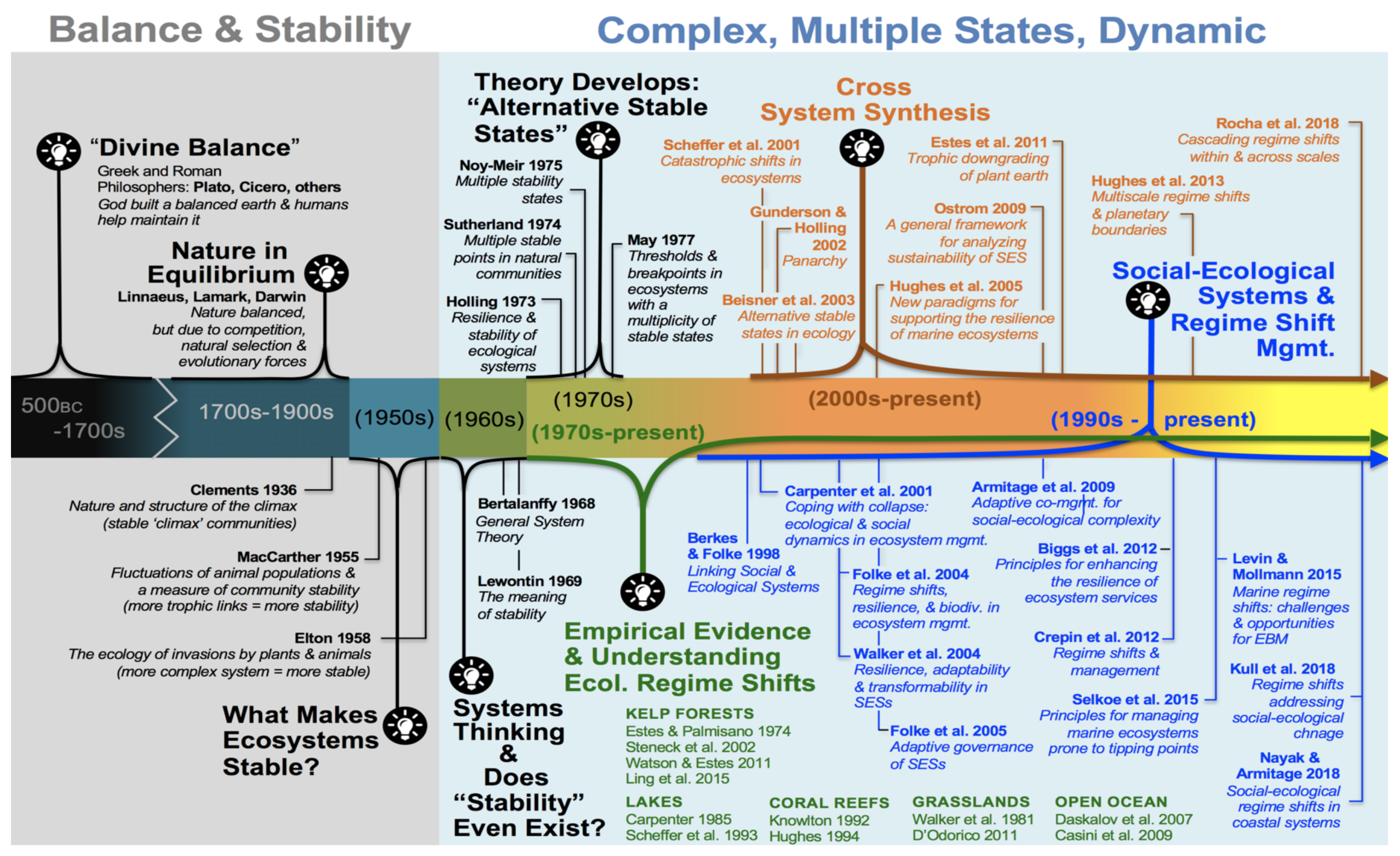
Source: Jenn Burt PhD Thesis
Hysteresis
“Hysteresis is the dependence of the state of a system on its history … rate-dependent hysteris is a dynamic lag between inputs and ouptups” —Wikipedia
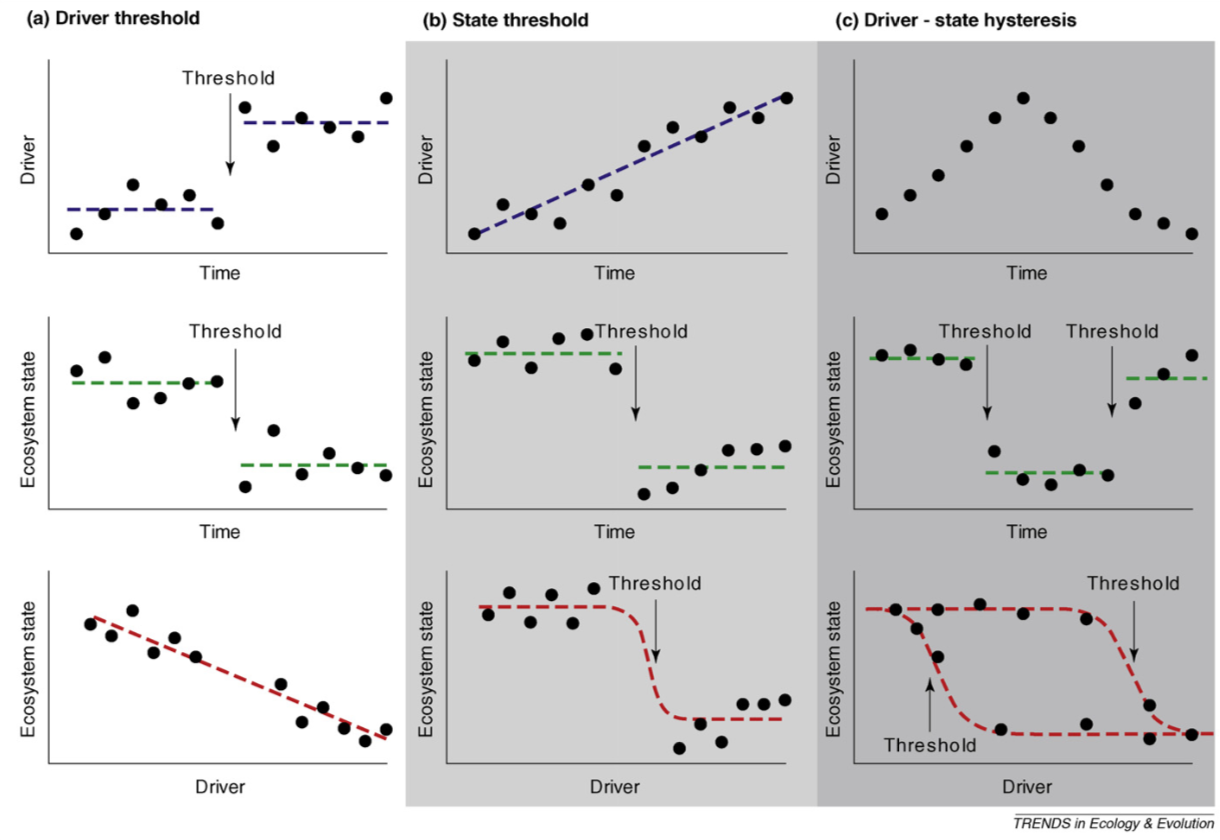
Andersen, J. et al. Trends Ecol Evol. (2009).
Abruptness affects the capacity to adapt to changes
Regime shifts and resilience
- Size of the basin of attraction
- Depth
- Slope
- Proximity to the boundary
- Property of the system or the regime (state variable)?
- Property of the disturbance?
- Resilience of what to what?
Clark, W 1975 IIASA
Menck et al 2013 NatPhys
Carpenter et al 2001 Ecosystems
Tipping points
Back to theory
d🐠d⏱️=🐠(1−🐠🌎)−🎣(🐠2🐠2+1)
Back to theory
d🐠d⏱️=🐠(1−🐠🌎)−🎣(🐠2🐠2+1)
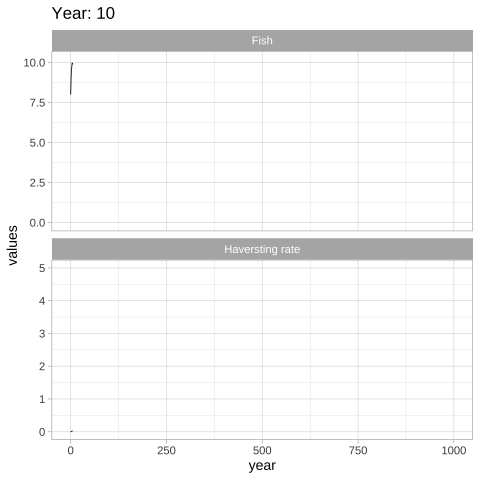
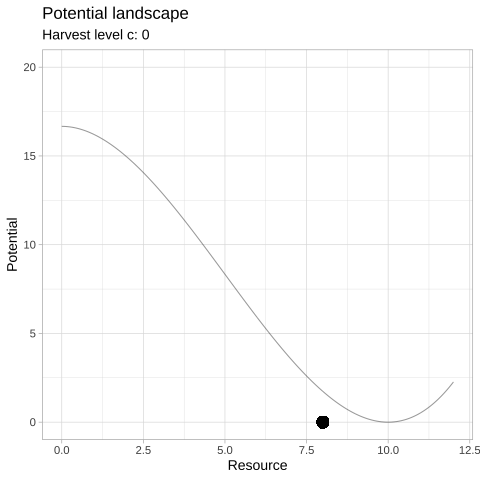
Where is the tipping point?
Where is the tipping point?
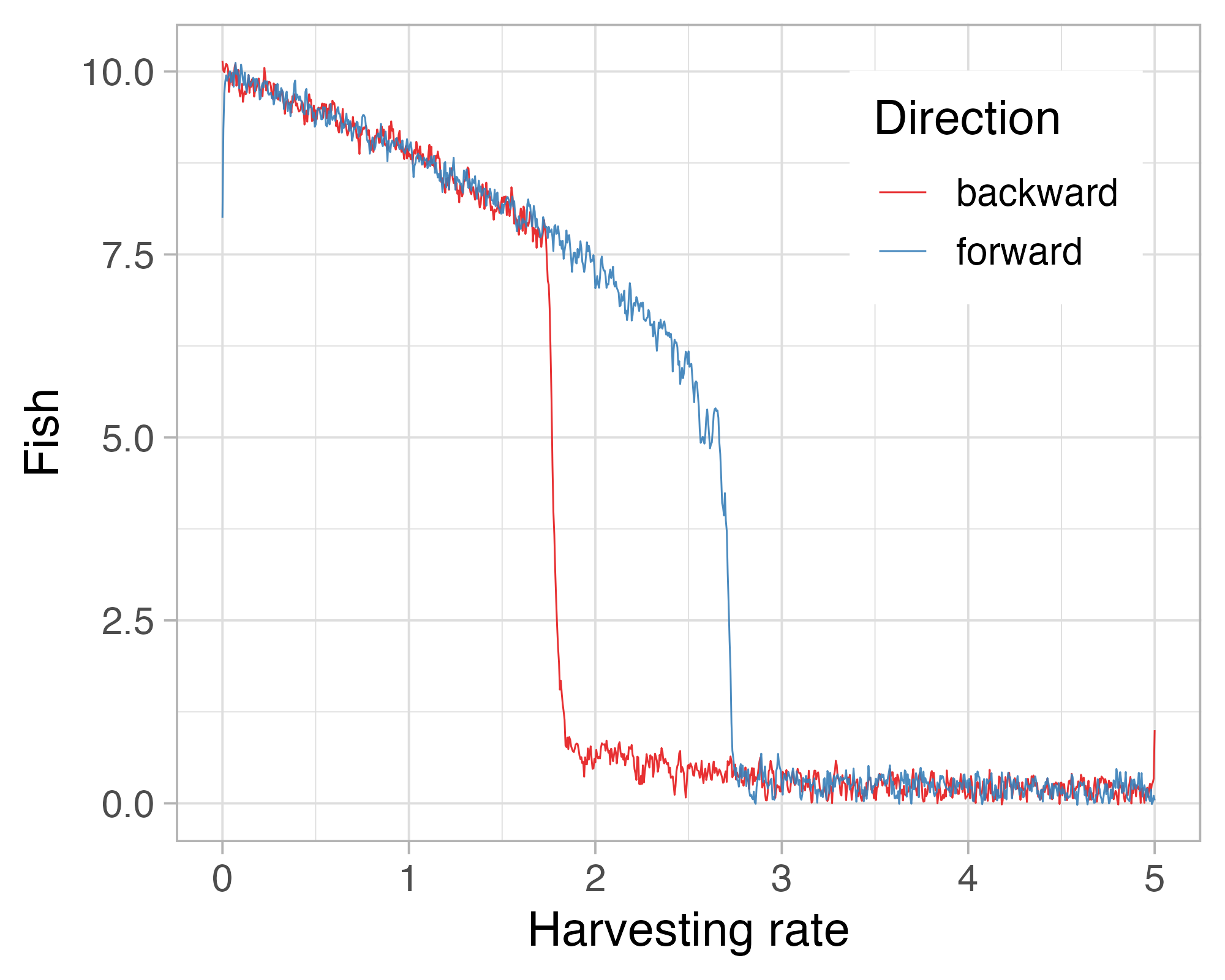
Tipping points

- Measurable and observable points at which the qualitative behaviour of the system changes
- Not people, nor events: history independent
- Clean to see in math, hard to see in the real noisy world
- Because hard to detect, some people do not find them useful e.g. Hillebrand et al 2020
Clarifications
- Tipping points are the points at which the system tips
- Theory vs Practice
- Threshold is the separatrix between basins of attraction
- Resilience is the size of the basin
- Its neither good or bad: depends on the observer
- e.g.: The mafia is resilient (good for drug consumers, bad for police & society)
Resilience indicators
- ↑ Variance and autocorrelation
- Δ skewness and kurtosis
- Model-based indicators:
- Diffusion jump models
- Time varying AR(p) models
- Threshold AR(p) models
- Potential analysis
- Spatial indicators:
- Fourier transforms
- Power spectrum
- Patch-size distributions
Critical slowing down
d🐠d⏱️=🐠(1−🐠🌎)−🎣(🐠2🐠2+1)


Critical slowing down
- Variance and autocorrelation
- NDVI: normalized difference vegetation index
- VOD: vegetation optical depth
- Limited spatial and temporal resolution
- Confirm a threshold: 1500mm
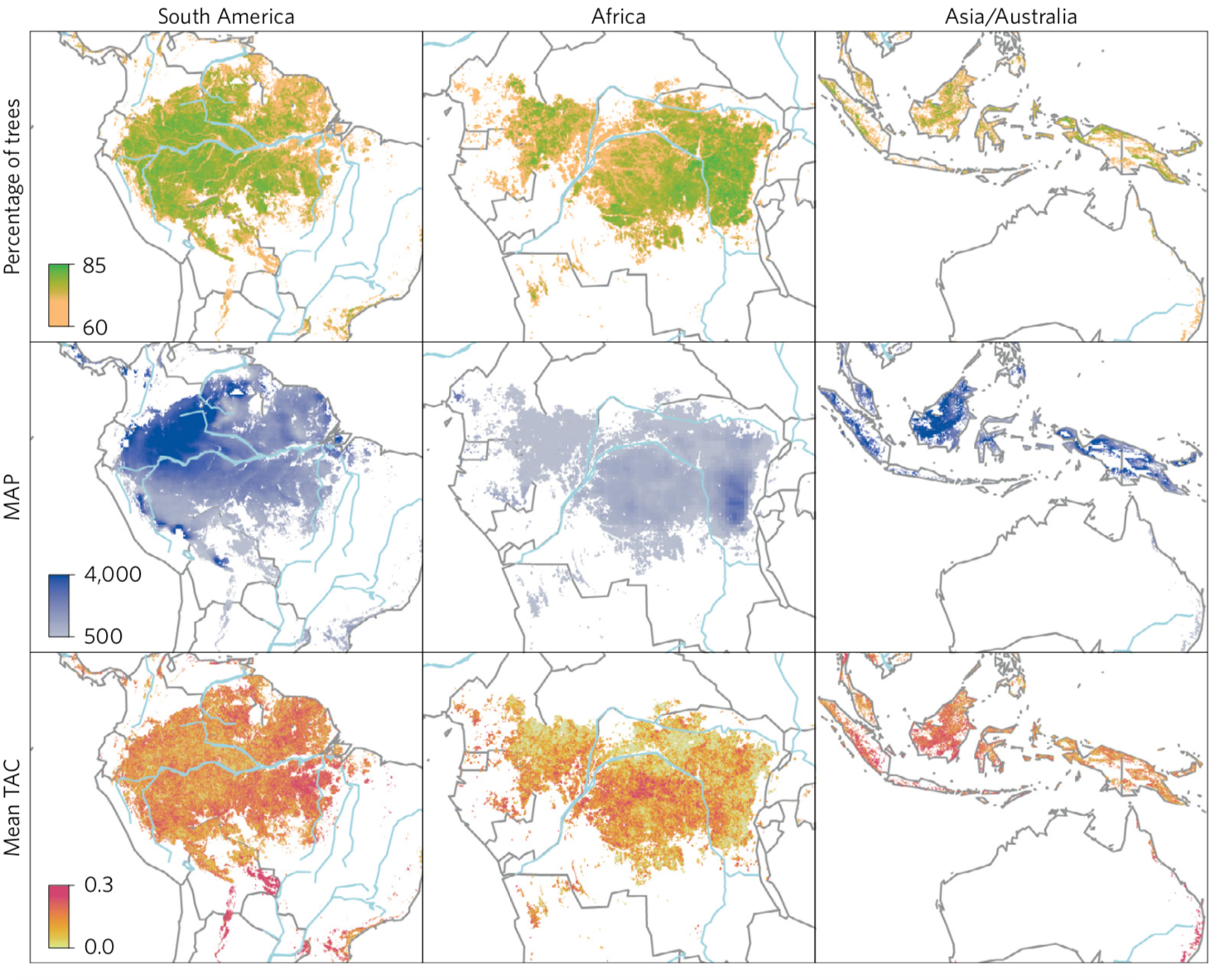
Verbesselt J, et al. Remotely sensed resilience of tropical forests. 2016.
Limitations: fail when dynamics are driven by stochastic processes or when signals have too much noise
Resilience indicators
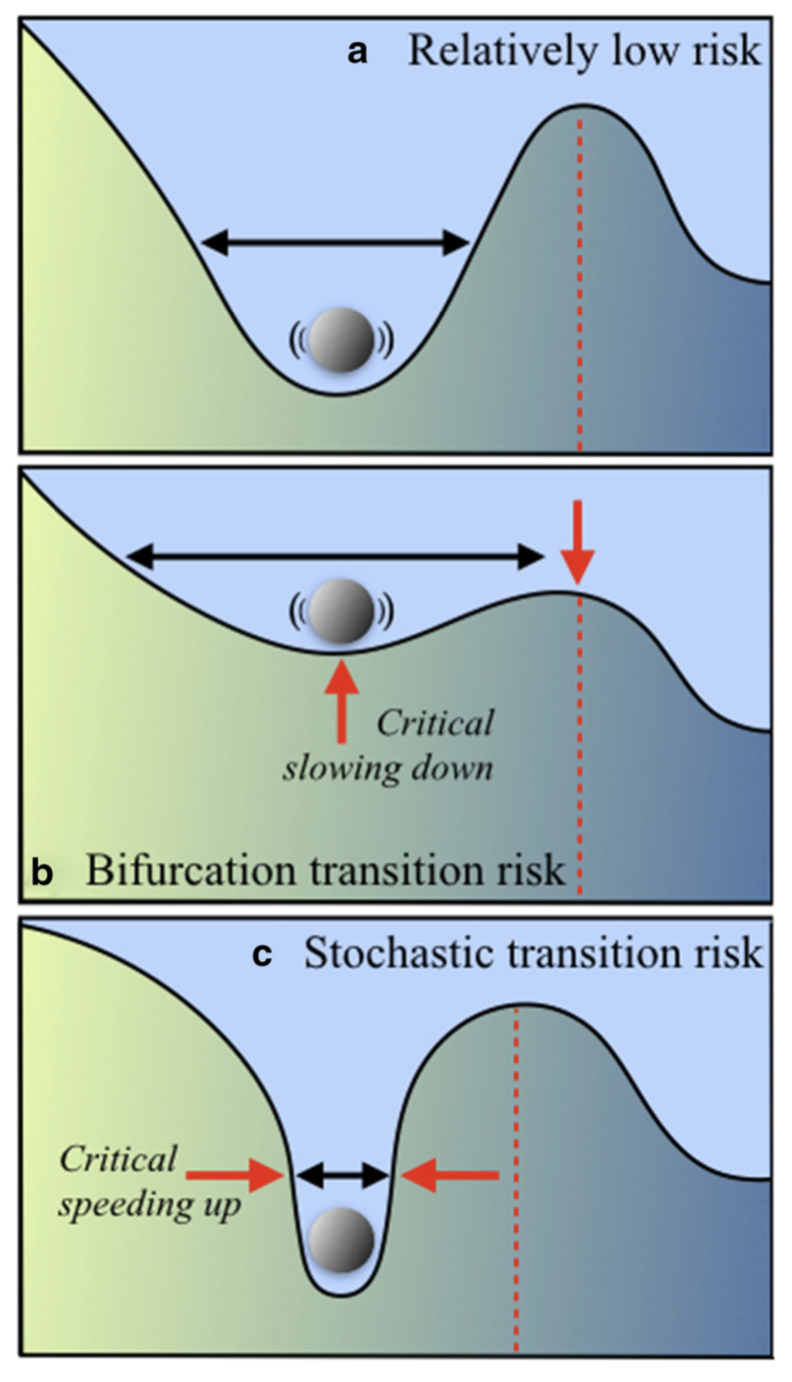
Resilience indicators
- ↑ adaptive capacity
- Measure of self-similarity across scales
- Fractal geometry:
- Bounded
- Magnitudes do not depend on scale
- Clear interpretation
- Applications in medicine
West, Bruce. 2010. Frontiers Physiology
Gneiting et al. 2012. Statistical Science.
Exercise
- Download notebook
RAYS_practice.Rmdand datadieoffs.Rdafrom: https://tinyurl.com/2337yak3 - Try to code yourself a function to calculate one of the early warnings
- If you give up, use the
library(earlywarnings)
Do you find early warnings on real data?



